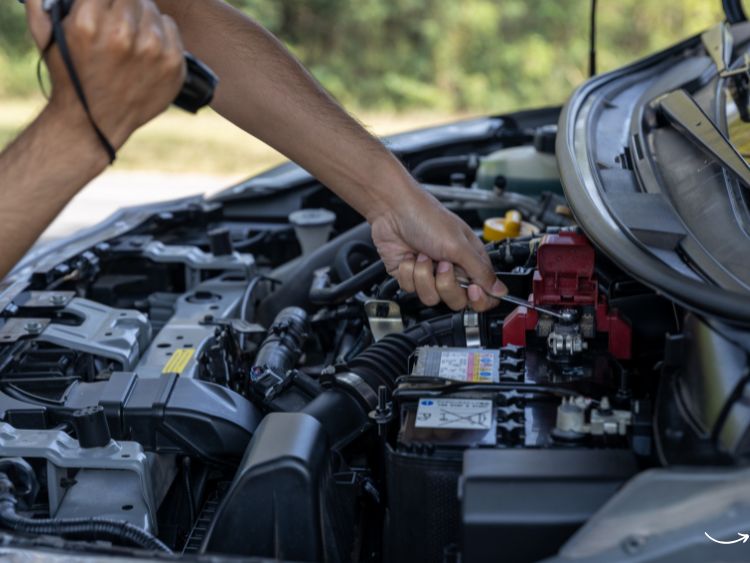Picture this: you’re ready for a road trip, snacks packed, playlist curated, but as you turn the key, your car doesn’t start. Frustrating, right? Often, the culprit is a dead or faulty car battery. But did you know there are different types of car batteries suited for various vehicles and needs? In this comprehensive guide, we’ll dive into the world of car battery types, helping you make an informed choice next time you find yourself in the automotive aisle. So, buckle up and let’s get started!
What Are Car Batteries?
Before diving into the types, let’s understand what a car battery does. In simple terms, a car battery is a rechargeable battery that supplies electrical current to a motor vehicle. It powers the starter motor, the lights, and the ignition system of a vehicle’s engine.
Main Types of Car Batteries
Understanding the different car battery types is crucial for selecting the right one for your vehicle. Here are the main categories:
1. Lead-Acid Batteries
Lead-acid batteries are the most common type found in vehicles. They’re affordable and reliable. There are two main subtypes:
a. Flooded Lead-Acid Batteries (FLA)
These are the traditional car batteries most people are familiar with. They have removable caps for topping off the electrolyte levels and require regular maintenance.
b. Sealed Lead-Acid Batteries (SLA)
Also known as Valve-Regulated Lead-Acid (VRLA) batteries, these are maintenance-free. They include:
- Absorbent Glass Mat (AGM) Batteries: These are sealed, spill-proof, and have a high discharge rate, making them suitable for high-performance vehicles.
- Gel Cell Batteries: These use a gelified electrolyte, making them robust and versatile, but they have a lower discharge rate compared to AGM batteries.
2. Lithium-Ion Batteries
Lithium-ion batteries are becoming increasingly popular, especially in electric vehicles (EVs) and hybrid cars. They’re lighter and have a higher energy density than lead-acid batteries. However, they are more expensive.
3. Nickel-Metal Hydride Batteries
Primarily used in hybrid vehicles, Nickel-Metal Hydride (NiMH) batteries offer better performance and longer life than lead-acid batteries but are costlier and require specific charging systems.
4. Calcium-Calcium Batteries
These are an advanced version of lead-acid batteries, featuring calcium added to both the positive and negative plates. This modification reduces water loss and extends battery life, making them maintenance-free.
5. Enhanced Flooded Batteries (EFB)
EFBs are an improved version of traditional flooded batteries, designed to support vehicles with start-stop technology. They offer better cycling performance and longer lifespan.
Pros and Cons of Different Car Battery Types
To help you decide which car battery type suits your needs, here are some pros and cons:
Lead-Acid Batteries
- Pros: Affordable, widely available, reliable.
- Cons: Heavy, require maintenance (FLA), lower energy density.
Lithium-Ion Batteries
- Pros: Lightweight, high energy density, longer lifespan.
- Cons: Expensive, sensitive to high temperatures.
Nickel-Metal Hydride Batteries
- Pros: Good performance, longer lifespan than lead-acid.
- Cons: Expensive, require specific charging systems.
Calcium-Calcium Batteries
- Pros: Maintenance-free, longer lifespan, reliable.
- Cons: More expensive than standard lead-acid batteries.
Enhanced Flooded Batteries (EFB)
- Pros: Better performance for start-stop systems, longer lifespan.
- Cons: More expensive than standard flooded batteries.
Choosing the Right Car Battery
Selecting the right car battery depends on several factors. Here’s what you should consider:
1. Vehicle Requirements
Different vehicles have different power requirements. Check your vehicle’s manual to understand the recommended battery type.
2. Climate
Batteries perform differently in various climates. For instance, lead-acid batteries can struggle in extreme cold, while lithium-ion batteries are sensitive to high temperatures.
3. Budget
While lithium-ion and advanced lead-acid batteries offer superior performance, they come at a higher cost. Balance your needs with your budget.
4. Maintenance
If you prefer a low-maintenance option, sealed batteries like AGM or SLA might be the way to go.
How to Maintain Your Car Battery
Maintaining your car battery can prolong its life and ensure reliable performance. Here are some tips:
1. Regular Inspections
Check the battery for signs of wear and tear, corrosion, or leaks.
2. Clean Terminals
Keep the battery terminals clean and free of corrosion. Use a mixture of baking soda and water for cleaning.
3. Check Electrolyte Levels
For flooded batteries, regularly check and top off electrolyte levels with distilled water.
4. Avoid Short Trips
Frequent short trips can prevent your battery from fully charging. Aim for longer drives to keep the battery charged.
5. Proper Storage
If storing the vehicle for an extended period, disconnect the battery or use a battery maintainer.
FAQs
1. What is the best car battery type for cold weather?
AGM batteries are known for their excellent performance in cold weather due to their high discharge rates.
2. Can I use a lithium-ion battery in my conventional car?
While possible, it’s not common due to the high cost and the need for compatible charging systems. They are more suited for electric and hybrid vehicles.
3. How long do car batteries typically last?
Lead-acid batteries last 3-5 years, while lithium-ion batteries can last up to 10 years with proper maintenance.
4. Are there environmentally friendly car batteries?
Lithium-ion batteries are more environmentally friendly compared to lead-acid batteries, due to their longer lifespan and recyclability.
5. What should I do if my car battery dies?
You can jump-start the car using jumper cables and another vehicle, or call for roadside assistance. It’s crucial to have the battery checked and possibly replaced afterward.
Summary
Understanding car battery types is essential for ensuring your vehicle’s reliability and performance. From the common lead-acid batteries to the high-tech lithium-ion options, each type has its pros and cons. Consider your vehicle’s requirements, climate, budget, and maintenance preferences when choosing a battery. Regular maintenance and proper usage can significantly extend your battery’s lifespan, preventing those dreaded moments when your car just won’t start.
For more information, check out these authoritative links:





